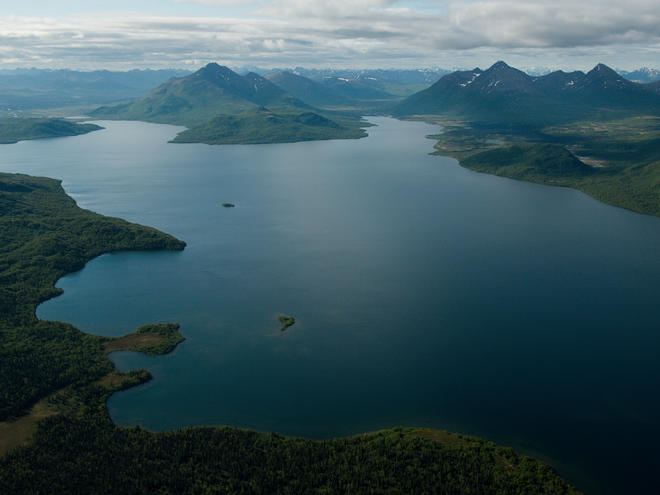Why is Bristol Bay important for salmon? And seven other Bristol Bay facts
Published by the World Wildlife Fund
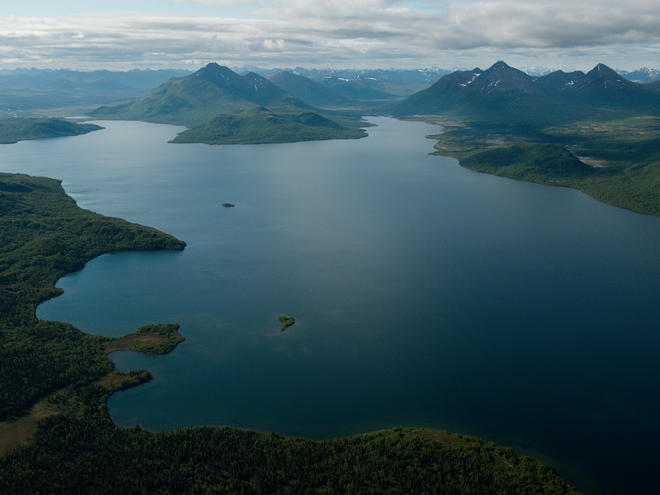
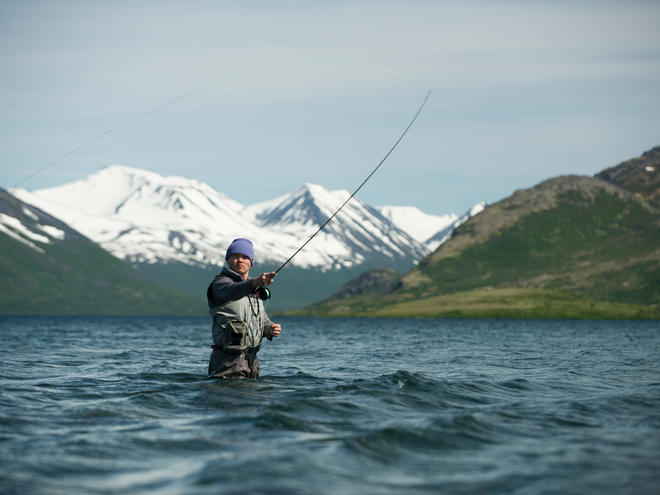
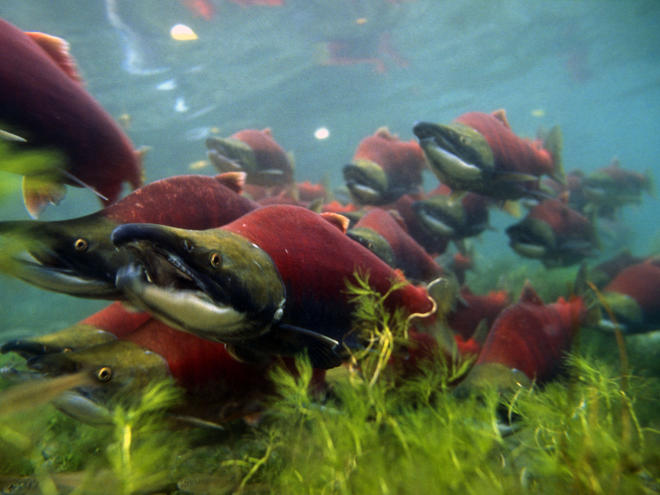
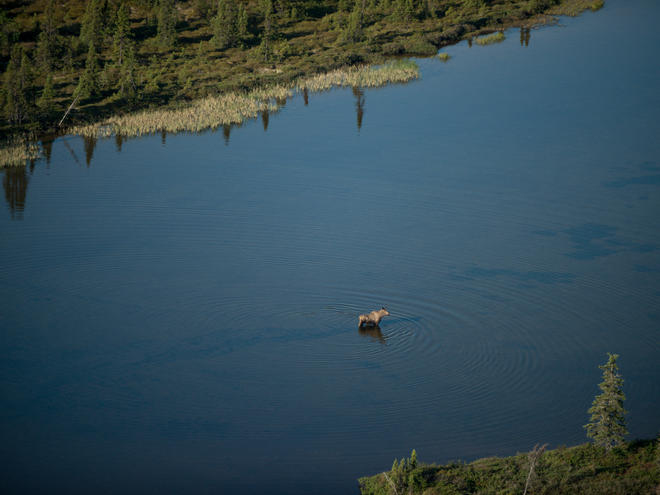
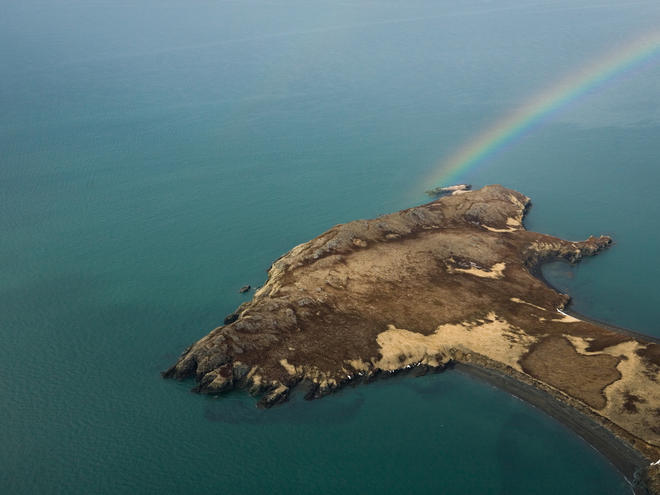
Alaska’s Bristol Bay is a sprawling watershed of winding streams and rivers, vast wetlands and tundra, forests of alder and spruce, and home to a variety of fish, birds and terrestrial animals. This breathtaking place is rightly referred to as “America’s Fish Basket” because it is one of the most productive marine ecosystems in the world and home to the world’s largest salmon fishery.
Bristol Bay is a national treasure that needs to be protected. Learn more about this incredible place that WWF is working hard to save.
1. Where is Bristol Bay?
Bristol Bay is in southwest Alaska.
2. What kind of species live in Bristol Bay?
The Bristol Bay watershed provides vital habitat for 29 fish species, more than 190 bird species, and more than 40 terrestrial animals, including bald eagles, moose, brown bears, rainbow trout, freshwater seals, pacific walrus, north pacific right whales and beluga whales.
3. Why is Bristol Bay important for salmon?
Bristol Bay is the most productive salmon ecosystem in North America, and it is unmatched in its productivity. All five species of Pacific salmon—sockeye, Chinook, coho, chum, and pink—spawn and rear in the Bristol Bay watershed, supporting wildlife like brown bears and eagles, as well as human industry and culture. The watershed supports the largest sockeye salmon run in the world, producing about 46% of the world’s wild sockeye harvest. It generates $1.5 billion a year and provides nearly 20,000 jobs throughout the United States annually. Over 4,000 locals, including many native Yup’ik and Dena’ina, rely on fish, moose, and other subsistence foods for 80% of their protein.
4. What threats does Bristol Bay face?
Human demand for and dependence on fossil fuels have put Bristol Bay’s remarkable resources at risk from offshore drilling and climate change. For nearly a decade WWF and our conservation partners fought to stop the threat of offshore oil and gas drilling in Bristol Bay. In 2015 the bay’s waters were removed from all future offshore leasing and the threats from oil spills, and the noise created by seismic testing. Today, the world’s Arctic regions— including Bristol Bay—are warming faster than practically anywhere else on Earth. Warming stream temperatures and reduced water flows from dwindling winter snows may ultimately threaten the survival of salmon eggs and fry. Left unchecked, rising sea level could inundate vast areas of highly productive habitat on land. The bay also faces a newer threat: the Pebble Mine project.
5. What is Pebble Mine?
Pebble Mine is a proposed open pit gold and copper mine. The Pebble Mine deposit is located at the headwaters of the Bristol Bay watershed, beneath Bristol Bay’s two most productive river systems in a seismically active region. The EPA estimates that Pebble Mine could grow to be nearly as deep as the Grand Canyon, cover an area larger than Manhattan, and could fill a major football stadium up to 3,900 times with mine waste.
6. How would Pebble Mine hurt Bristol Bay?
The EPA’s own scientific study contains concerning facts: even without a mine disaster, construction of the Pebble deposit will destroy 94 miles of salmon streams and 5,350 acres of wetlands, lakes and ponds. Overall, the EPA concluded that mining the headwaters of the Bristol Bay river systems could cause irreparable harm to the valuable Bristol Bay fishery, wildlife, and people.
7. What is WWF doing to protect Bristol Bay?
WWF has been partnering with in-region organizations to build community and village support and a longer-term branding initiative to support a sustainable economy into the future. WWF has also played a key role in educating the US government about how important Bristol Bay is to Alaska and the rest of the U.S.
8. What can I do to help protect Bristol Bay?
We need you to tell the EPA and the Trump administration to keep the proposed protections in place, and protect Bristol Bay from the proposed Pebble Mine. Take action today.
Read the full article at: http://feedproxy.google.com/~r/WWFStories/~3/qhaHSV1QRfo/why-is-bristol-bay-important-for-salmon-and-seven-other-bristol-bay-facts

